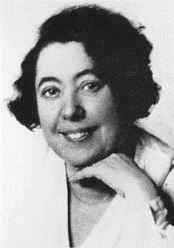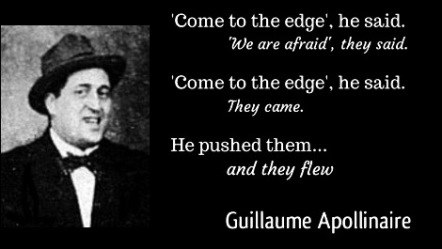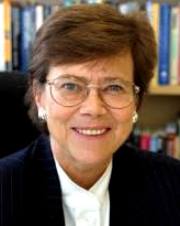August 26th is

National Women’s Equality Day *
National Toilet Paper Day
National Cherry Popsicle Day
National Dog Day *

_________________________________________
MORE! Zona Gale, Katherine Goble and Bella Abzug, click
_________________________________________
WORLD FESTIVALS AND NATIONAL HOLIDAYS
Abkhazia – Official Recognition Day 
India – Raksha Bandhan
(Hindu brother and sister festival)
Namibia – Heroes Day
Papua New Guinea –
National Day of Repentance
United Kingdom – Llanwrtyd Wells:
World Bogsnorkelling Championships
_________________________________________
On This Day in History
55 BC – Britain invaded by Roman forces under Julius Caesar
1346 – English archers with longbows prove superior to the French cavalry’s armor at the battle of Crécy in Picardy, France. English forces are greatly outnumbered by the French, but English tactical flexibility, better use of terrain and outstanding weaponry win a decisive victory. The longbow becomes the dominant weapon of Western European battlefields until replaced by the arquebus in the 16th century

1498 – Michelangelo commissioned to sculpt the ‘Pieta’

1676 –Robert Walpole born, British Prime Minister (1721-1742)

1695 – Marie-Anne-Catherine Quinault born, French singer and composer, composed motets for the Royal Chapel at Versailles, awarded the Order of Saint Michael
1728 – Johann Heinrich Lambert born, Swiss polymath, contributed to trigonometry, map projections, physics, optics and astronomy
1740 – Joseph-Michel Montgolfier born, French inventor; hot-air balloon co-inventor

1743 – Antoine-Laurent Lavoisier born, French pioneer in chemistry; work on oxygen, hydrogen, the nature of sulphur and the process of combustion, reformed chemical nomenclature; posited when matter changes form or shape, its mass stays the same
1768 – Captain James Cook’s first expedition sails from England
1789 – The Declaration of the Rights of Man and of the Citizen is approved by the National Constituent Assembly of France – the full rights applied only to property-owning French men, just 4.3 million”active” citizens out of a total population of 29 million
1827 – Annie Turner Wittenmyer born, American social reformer, author, magazine editor and relief worker; started a free school for underprivileged children; during the Civil War, was a field agent for the Ladies’ Soldiers’ Aid Society; a post-war advocate for war orphans; first President of the Women’s Christian Temperance Union

1842 – U.S. Congress establishes the first fiscal year is to begin on July 1st
1843 – Georg August Lumbye born, Danish composer and orchestra leader
1847 – Liberia proclaimed as an independent republic
1873 – Lee De Forest born, American inventor of the Audion vacuum tube
1873 – The St. Louis MO School Board authorizes the first U.S. public kindergarten
1874 – Zona Gale born, American author and playwright; 1921 Pulitzer Prize for Drama, the first woman to win for drama, for her adaptation of her novel, Miss Lulu Bett; National Woman’s Party member who lobbied extensively for the 1921 Wisconsin Equal Rights Law

1878 – Lina Solomonovna Stern born, Soviet scientist and humanist, did pioneering work on the blood-brain barrier; her medical discoveries credited with saving thousands of lives during WWII; first woman to reach professional rank at the University of Geneva, as a Professor of Chemio-Physiology, while she was researching cellular oxidation. Accused in 1949 by the USSR of belonging to a Zionist organization, the Jewish Anti-Fascist Committee, she was tried and sentenced to prison, then exile, but freed and reinstated in 1953

Lina Solomonovna Stern, circa 1910
1880 – Guillaume Apollinaire born in Italy of Polish descent, French poet, playwright, novelist and art critic; regarded as one of the foremost poets of the early 20th century, and a forefather of Surrealism; died in the Influenza pandemic of 1918 at age 38

1885 – Jules Romains born, French author and poet, nominated for the Nobel Prize in Literature 16 times; founder of the Unanimism literary movement, based on crowd behavior and collective consciousness

1886 – Jerome C. Hunsaker born, American aeronautical engineer; graduated from the Naval Academy; developed the first courses in aeronautical engineering at MIT; designed the NC4 seaplane, the first transatlantic aircraft
1901 – Eleanor Dark born, Australian historical novelist; The Timeless Land, Prelude to Christopher and Return to Coolami; she won the Australian Literature Society Gold Medal for literature twice

1903 – Caroline Pafford Miller born, American author, won 1934 Pulitzer Prize and the Prix Femina for her first novel Lamb in His Bosom
1904 – Christopher Isherwood born in England, American novelist and playwright; the musical Cabaret is based on his play I Am a Camera

1906 – Albert Sabin born in Poland, American doctor who developed the polio vaccine
1907 – Harry Houdini escapes from chains underwater at Aquatic Park in 57 seconds
1915 – Humphrey Searle born, English composer and BBC producer
1918 – Katherine Goble Johnson born, African American mathematician whose calculations of orbital mechanics for NASA were critical to the success of the first and subsequent U.S. manned spaceflights. During her 35-year career at NASA and its predecessor, NACA, she mastered complex manual calculations, including calculating trajectories, launch windows and emergency return paths for Project Mercury spaceflights, and rendezvous paths for the Apollo lunar lander and command module on flights to the Moon. Her calculations were also critical during the early stages of the Space Shuttle program, and she worked on plans for a mission to Mars. Honored in 2015 with the Presidential Medal of Freedom by President Obama

1920 – 19th Amendment of U.S. Constitution officially certified as ratified, it grants U.S. women the right to vote
1921 – Benjamin Bradlee born, American newspaperman; he had a brief stint as a reporter for The Washington Post in 1946, then worked for the U.S. government and Newsweek. He was the executive editor of The Washington Post (1968-1991), and became nationally known because of his role in exposing both the Pentagon Papers (1971) and the Watergate scandal (1972); he was also an advocate for education and the study of history

1925 – Etelka Keserű born, Hungarian economist and Hungarian Socialist Workers’ Party politician, Minister of Light Industry (1971-1980), after serving as the Deputy Minister of Light Industry (1967-1971); member of the Hungarian Women’s National Council (1971-1990)
1926 – Anahit Tsitsikian born, notable Armenian violinist, and music scholar who specialized in Armenian musicology, and ancient music history; founder of a branch of Armenian musical archaeology
1935 – Geraldine Ferraro born, American attorney, author and politician, member of U.S. House of Representatives (D-NY 1979-1985), first woman to run as vice president for a major US political party (1984); U.S. Ambassador to the United Nations Commission on Human Rights (1993-1996)

1935 – Karen Spärck Jones born, British computer scientist, who worked on natural language processing and information retrieval; noted for the concept of inverse document frequency, a technology which is the basis of most modern search engines; outspoken advocate for women’s careers in computing; fellow and Vice President (2000-2002) of the British Academy; President of the Association for Computational Linguistics (1994), and recipient of its 2004 Lifetime Achievement Award; also honored with the British Computer Society 2007 Lovelace Medal

1939 – The NBC Symphony Orchestra plays on the radio for the first time
1944 – WWII: Charles de Gaulle, leader of the Free French, enters Paris
1944 – Dame Judith A. Rees born, geographer; interim Director of London School of Economics and Political Science (LSE – 2001-2012) and Director of LSE’s ESRC Centre for Climate Change Economics and Policy (hosted jointly with University of Leeds), and of Grantham Research Institute on Climate Change and the Environment; appointed Dame Commander of the Order of the British Empire (DBE) in 2013

1947 – Don Bankhead becomes the first black pitcher in major league baseball
1951 – An American in Paris, with George Gershwin music, starring Gene Kelly and Leslie Caron, premieres in London – it wins the 1952 Academy Award for Best Picture
1956 – Sally Beamish born, British composer and violist, formerly with the Raphael Ensemble; recipient of the 1993 Paul Hamlyn Foundation Award for outstanding achievement in composition
1957 – Ford Motor Company rolls the first Edsel off the assembly line
1957 – Nikky Finney born, American poet; raised by parents active in the Civil Rights Movement, she is an advocate for social justice and cultural preservation; Guy Davenport Endowed Professor of English at the University of Kentucky (1993-2013); author of four books of poetry, Finney won the 2011 National Book Award for Head Off & Split, and the 1999 PEN/Beyond Margins Award

1964 – Allegra Huston born in England, New Mexico-based novelist, non-fiction and screenplay writer; noted for Love Child: A Memoir of Family Lost and Found, Bloomsbury, and her novel, Say My Name
1967 – U.S. release of “Purple Haze” by Jimi Hendrix
1968 – The Beatles release “Hey Jude” (with “Revolution” on the b-side) as a single on their new Apple Records label
1970 – Betty Friedan opens a nationwide protest called the Women’s Strike for Equality in New York City on the fiftieth anniversary of women’s suffrage, sponsored by the National Organization for Women. There were 20,000 activists on Fifth Avenue on New York City, 5,000 on Boston Common, 2,000 in San Francisco’s Union Square, and 1,000 in Washington DC. Smaller groups participated in Syracuse and Manhasset in NY State, and in Detroit, Pittsburgh, Minneapolis, Los Angeles, and Saint Louis

1971 – First Women’s Equality Day,* initiated by Representative Bella Abzug (D-NY), is established by Presidential Proclamation, now reaffirmed annually

1981 – NASA’s Voyager 2 takes photos of Saturn’s moon Titan
1989 – Mayumi Moriyama is appointed chief cabinet secretary by Toshiki Kaifu, the first woman to hold this position. In 1992, she becomes the first woman Minister of Education in Japan

2002 – U.N. World Summit on Sustainable Development opens in Johannesburg, South Africa, resulting in the Johannesburg Declaration to address depletion of the world’s fisheries. 60,000 delegates attend, but U. S. President George W. Bush boycotted the summit, sending no delegation

South African President Thabo Mbeki welcomes delegates to the summit
2004 – National Dog Day * is founded by animal advocate Colleen Paige to celebrate all dogs and to encourage adoption – rescue dogs make great companions and each one deserves a “forever home”

2011 – The Boeing 787 Dreamliner, an all-new composite airliner, receives certification from the European Aviation Safety Agency (EASA) and the U.S. Federal Aviation Administration (FAA)
_________________________________________
